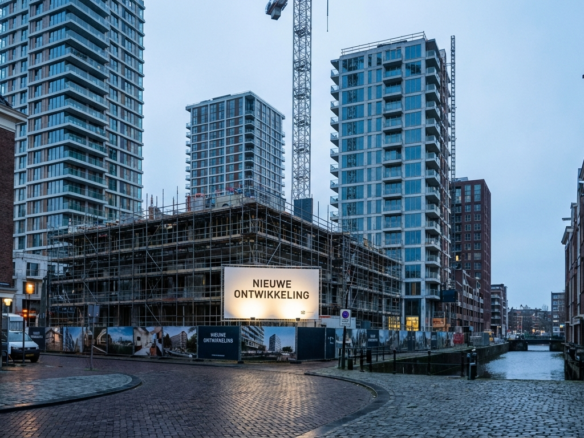Barcelona, a city renowned for its vibrant culture, stunning architecture, and bustling tourism scene, faces a mounting challenge that resonates across many European urban centers: how to manage the explosive growth of short-term rentals while safeguarding the interests of local residents. Recent calls from Airbnb for the implementation of urgent short-term rental regulations underscore the urgency of this issue, prompting a reevaluation of the city’s housing market dynamics and the broader implications for European real estate markets.
Get 50% OFF!
Subscribe to our newsletter and enjoy a 50% discount on all listing packages, no strings attached!

Understanding the Current Landscape of Short-Term Rentals in Barcelona
Over the past decade, Barcelona has experienced a tourism boom driven by platforms like Airbnb, which have transformed the city’s housing market. While these platforms have provided homeowners with new income streams, they have also contributed to significant challenges, including rising property prices, reduced long-term rental availability, and the displacement of local residents.
According to recent data, the proliferation of short-term rentals in Barcelona has led to a substantial increase in property prices, particularly in popular districts such as Eixample, Ciutat Vella, and Gràcia. This trend has made it increasingly difficult for locals to find affordable housing, fueling social tensions and calls for regulatory intervention.
Airbnb’s Advocacy for Urgent Regulatory Measures
In a bold move, Airbnb has publicly called for the Spanish government and local authorities to establish clear, enforceable rules governing short-term rentals. The platform emphasizes that regulation is essential not only to curb mass tourism but also to support local communities and ensure sustainable urban development.
Airbnb’s spokesperson highlighted that unregulated short-term rentals have contributed to the “massification of tourism,” which strains city infrastructure, exacerbates housing shortages, and diminishes residents’ quality of life. The company advocates for measures such as licensing requirements, caps on the number of rental days, and stricter enforcement against illegal listings.
Implications for the Barcelona Real Estate Market
The push for regulation carries profound implications for Barcelona’s real estate market. On one hand, tighter controls could stabilize property prices and restore balance to the housing supply, making long-term rentals more accessible for residents. On the other hand, increased regulation might dampen the attractiveness of the city for investors and property owners who rely on short-term rental income.
From an investment perspective, the potential for regulatory restrictions introduces a layer of uncertainty. European investors are increasingly scrutinizing cities with evolving short-term rental policies, weighing the risks of regulatory crackdowns against the lucrative returns of the tourism-driven rental market.
Lessons for European Cities Facing Similar Challenges
Barcelona’s experience is emblematic of a broader trend across European urban centers grappling with the consequences of unregulated short-term rentals. Cities like Amsterdam, Berlin, and Paris have all introduced measures aimed at controlling the growth of platforms like Airbnb, often with mixed results.
For European real estate professionals, understanding the nuances of local regulations and community sentiments is crucial. Strategic property management and investment decisions must now incorporate considerations of regulatory risk, community engagement, and sustainable urban planning.
Strategies for Balancing Tourism and Local Livability
Achieving a sustainable equilibrium requires a multifaceted approach:
- Implementing Clear Regulations: Establishing licensing systems, rental caps, and compliance checks to prevent illegal listings.
- Promoting Responsible Tourism: Encouraging visitors to respect local communities and supporting eco-friendly tourism initiatives.
- Supporting Long-Term Housing: Incentivizing property owners to prioritize long-term rentals and affordable housing projects.
- Engaging Stakeholders: Facilitating dialogue among residents, policymakers, and industry players to craft balanced solutions.
The Role of Policy and Community Engagement in Shaping the Future
Effective regulation hinges on transparent policymaking and active community participation. Cities that succeed in managing short-term rentals often do so by fostering collaboration among stakeholders, ensuring that economic benefits do not come at the expense of residents’ quality of life.
European policymakers are increasingly recognizing that sustainable urban development must integrate tourism management with housing affordability. The challenge lies in crafting policies that are both enforceable and adaptable to evolving market conditions.
Looking Ahead: Opportunities for Investors and Developers
While regulatory uncertainties pose challenges, they also open avenues for innovative real estate development. Projects that prioritize community integration, sustainable tourism, and affordable housing are likely to gain favor among policymakers and residents alike.
Investors should consider diversifying portfolios to include properties suited for long-term rentals or mixed-use developments that align with emerging regulatory frameworks. Additionally, engaging with local authorities and community groups can facilitate smoother project approvals and foster goodwill.
Conclusion: Navigating the Future of Urban Short-Term Rentals in Europe
Barcelona’s call for urgent regulation of short-term rentals exemplifies a pivotal moment in the evolution of European urban real estate markets. Balancing the economic benefits of tourism with the imperative to preserve local communities requires nuanced policies, strategic investments, and active stakeholder engagement.
As the landscape continues to shift, staying informed about regulatory developments and market trends is essential for real estate professionals, investors, and residents alike. To explore property opportunities aligned with these emerging trends, connect with a trusted European real estate expert or browse our latest listings.
For further insights into sustainable urban development and real estate strategies across Europe, visit the European Commission or explore industry reports on Statista.
Engage with us today to discover how your investments can thrive amid evolving urban policies and contribute to sustainable city living. The future of European real estate is dynamic—be part of shaping it.





Join The Discussion